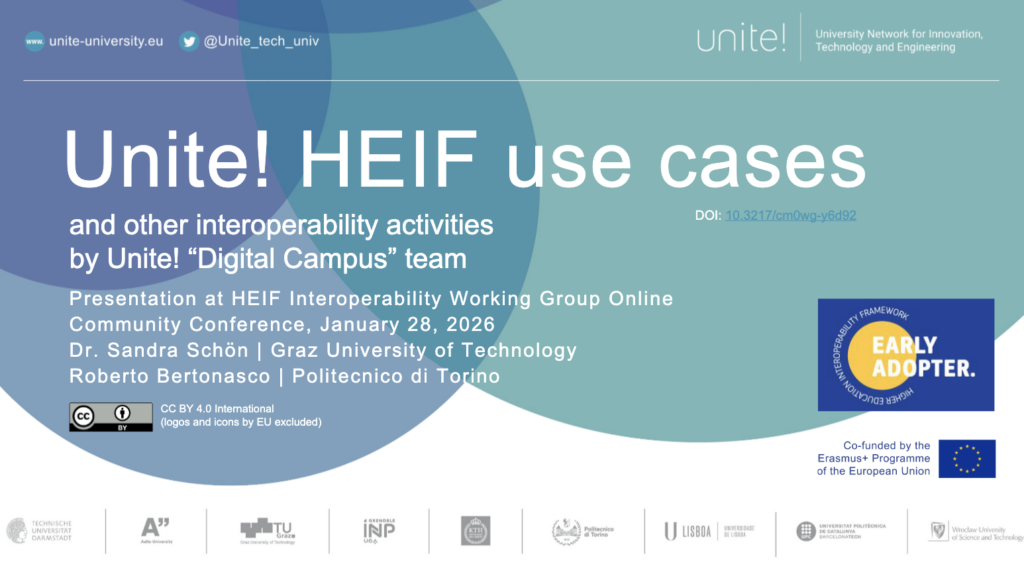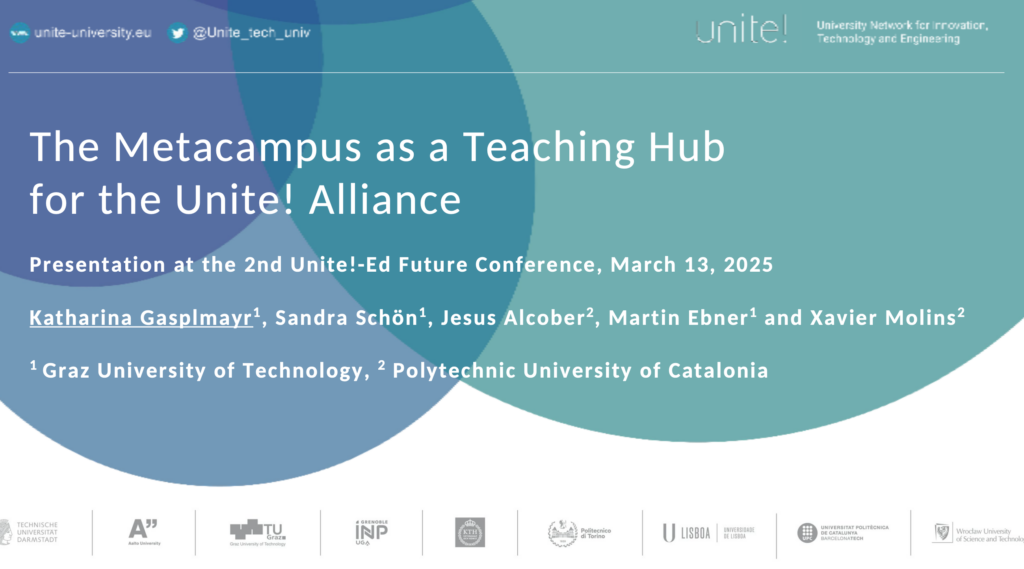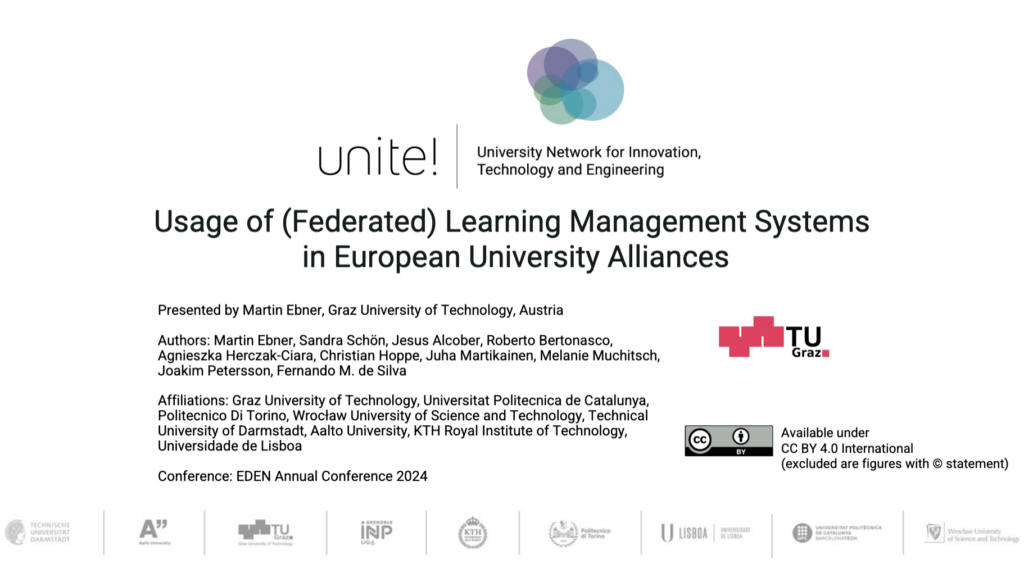Our report about „Implementing the European Student Card within the European university alliance Unite!. A technical report on status, developments, and plans of Unite! universities“ is online available:
This report describes the implementation of the European Student Card Initiative (ESCI), launched by the European Commission in 2022 and comprising Erasmus Without Paper (EWP), the European Student Card (ESC), and the ERASMUS+ App, within the Unite! alliance. The first part focuses specifically on the ESC, drawing on the actions taken and the information gathered within the framework of the initiative. The Unite! alliance, comprising nine universities (Aalto University, Grenoble INP graduate school of engineering and management, University Grenoble Alpes, KTH Royal Institute of Technology, Politecnico di Torino, Graz University of Technology, Universidade de Lisboa, Universitat Politècnica de Catalunya/BarcelonaTech, Technical University of Darmstadt, and Wroclaw University of Science and Technology), aims to promote the concept of a European campus. The report outlines the nature of this initiative, the strategy adopted since 2023, and the current state of implementation within the Unite! alliance (as of August 2025). It presents two solutions for establishing ESCs within the alliance, including internally developed software solutions, such as a virtual student card application created by Politecnico di Torino, and options involving external service providers, such as Capmonetique in France at UGA (as part of the Unite! partner INP-UGA). The report also highlights potential improvements and broader implications of implementing the ESC, with the objective of supporting and informing other universities about the available solutions.
Recommended Citation: Bertonasco, R., Diard, J., Landfahrer Berglez, K., Schön, S., Alcober, J., Büttner, W., Cruz, L., Ebner, M., Espadas, C., Ferrian, C., Fink, J., Gasplmayr, K., Hoppe, C., Järvelä, H., Krysiak, J., Oller, M., Petersson, J., Reignier Tayar, N., Schmidt, A., Sessler, C., Szymanska-Kwiecien, A. & Tadaszak, R. (2025). Implementing European Student Card amongst the European university alliance Unite!: A technical report on status, developments, and plans of Unite! universities (Technical Report). Graz University of Technology. DOI: 10.3217/nzz7b-vam63
[Link to the report]
This is an impactful contributions, methodological rigor, and exceptional novelty in the field of european alliances in higher education.




